
I passed the ball wide and made a run-in to the box. In came the cross and I got a hefty boot to it, sending it soaring over the bar. As I looked up and watched the ball clear the fence behind the goal, I saw another skein of geese.
I stopped and gazed, recalling evenings past, hunkered on the foreshore waiting for noisy distant greylags to drift closer. This was the third week in a row that geese had flown over the football pitch, in vast skeins of 50 or 60 all the way down to pairs and trios. They seemed to be following more or less the same flightpath, perhaps heading for Rutland Water a few miles away.
I returned to my game of football, yet more dodgy passes and poor shots; the rain fell all evening and I think we lost 2-0. My mind was elsewhere. Burghley Lake, sitting a little over a mile from where we were playing, was almost certainly the source of the greylag. I knew from my dog walks and work in Burghley Park that there were plenty of geese around, grazing on the lawns of the Elizabethen house and across the wider grassland of the park.
Flightline
When I got home after football, I dug out an old Ordnance Survey map of the area and carefully traced the flightline back from the football pitches towards the lake. The map is one I’ve had for a few years and is annotated with little scribbles; crosses marking the spots of fish I’ve caught, notes of curious trees or good spots for a morning deer stalk. Sure enough, it seemed the geese were tracking down the length of the lake and out across Stamford.
After a day of wholesome activities, including watching England dismantle Argentina at the Rugby World Cup and an afternoon beating for a local pheasant shoot, my partner Cynthia and I headed from my house towards the western end of the lake, just as the gloaming arrived.
This story is from the November 20, 2019 edition of Shooting Times & Country.
Start your 7-day Magzter GOLD free trial to access thousands of curated premium stories, and 9,000+ magazines and newspapers.
Already a subscriber ? Sign In
This story is from the November 20, 2019 edition of Shooting Times & Country.
Start your 7-day Magzter GOLD free trial to access thousands of curated premium stories, and 9,000+ magazines and newspapers.
Already a subscriber? Sign In
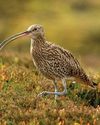
United we stand
Following United Utilities' decision to end grouse shooting on its land, Lindsay Waddell asks what will happen if we ignore our vital moors

Serious matters
An old gamebook prompts a contemplation on punt-gunning
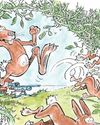
They're not always as easy as they seem
While coneys of the furry variety don't pose a problem for Blue Zulu, he's left frustrated once again by bolting bunnies of the clay sort
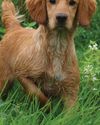
Debutant gundogs
There's lots to think about when it comes to making the decision about when to introduce your dog to shooting

When the going gets rough
Al Gabriel returns to the West London Shooting School to brush up on his rough shooting technique
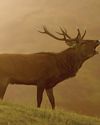
The Field Guide To British Deer - BDS 60th Anniversary Edition
In this excerpt from the 60th anniversary edition of the BDS's Field Guide To British Deer, Charles Smith-Jones considers the noise they make
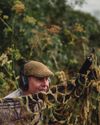
A step too far?
Simon Garnham wonders whether a new dog, a new gun and two different fields in need of protection might have been asking too much for one afternoon's work
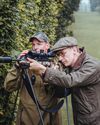
Two bucks before breakfast
A journey from old South London to rural Hertfordshire to stalk muntjac suggests that the two aren't as far detached as they might seem
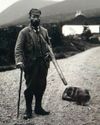
Stalking Diary
Stalkers can be a sentimental bunch, and they often carry a huge attachment to their hill

Gamekeeper
Alan Edwards believes unique, private experiences can help keepers become more competent and passionate custodians of the countryside